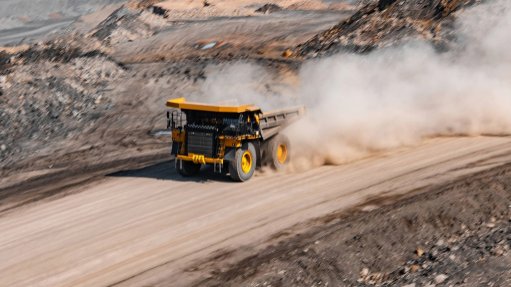Datacentres, meet microgrids
This article has been supplied.
By Faith Waithaka, Cloud and Service Provider Segment Sales Lead: Anglophone Africa at Schneider Electric
Discussions around datacentre reliability have moved up a gear to include sustainable resiliency. And with good reason; power grids across the world are buckling under the pressure to deliver reliable power to high-energy consumers such as datacentres.
The statistics are high, datacentres can consume up to 50 times more energy per floor space than a typical commercial office building. Plus, if one considers the continued proliferation of digital transformation, IoT and big data, the industry needs to look elsewhere to provide consistent energy supply.
Enter microgrids which can provide sustainable energy on-site generation that lead to cost savings and improved resiliency. Today’s microgrid designs are helping datacentres address three important goals:
- It coordinates a variety of onsite, distributed energy resources (DER), including renewable generation,
- It optimises costs while also enhancing power stability which includes the option to ‘island’ from the utility grid to avoid exposure to load shedding, outages, and other disturbances.
- It enables organisations to meet sustainability targets and environmental regulations by reducing datacentres’ overall carbon footprint.
Microgrids in action
As mentioned, costs savings is an important microgrid differentiator. For example, when the cost of grid energy rises, the microgrid can increase consumption of onsite renewable or stored energy.
Stored energy can also be sold back to the grid when most economical. And consumption of renewable energy can be maximised to meet greenhouse gas (GHG) emissions targets.
Looking at daily operations, microgrid control occurs through a combination of onsite microgrid controllers and software, as well as cloud-based analytics and services. Intelligent control manages grid connection and islanding, all aspects of safety, and how DERs are used while connected or disconnected from the grid.
Advanced energy analytics are also used to achieve cost savings through a dynamic model of ‘utility interdependency’ that enables the flexibility and functional value of DER to be fully monetised.
The greater the variety of DER, the more optimisation opportunities can be taken advantage of, and the greater the resiliency against a single mode of disruption. The choice of DERs depends on geographical opportunities and constraints, access to renewable energy resources, and the overall project financial attractiveness.
Today’s microgrids also offer advanced design, construction, and operations which are based on standardised, prepackaged system components and modular pre-validated architectures. These enable configured-to-order microgrid systems that minimise delivery time and costs, increase reliability, and maximise ROI due to simplified design, installation, support, and maintenance.
Ultimately, microgrids have the potential to significantly drive down datacentre energy costs, mitigate load shedding, unforeseen outages whilst also taking organisations one step closer to achieving their sustainability targets.
Article Enquiry
Email Article
Save Article
Feedback
To advertise email advertising@creamermedia.co.za or click here
Press Office
Announcements
What's On
Subscribe to improve your user experience...
Option 1 (equivalent of R125 a month):
Receive a weekly copy of Creamer Media's Engineering News & Mining Weekly magazine
(print copy for those in South Africa and e-magazine for those outside of South Africa)
Receive daily email newsletters
Access to full search results
Access archive of magazine back copies
Access to Projects in Progress
Access to ONE Research Report of your choice in PDF format
Option 2 (equivalent of R375 a month):
All benefits from Option 1
PLUS
Access to Creamer Media's Research Channel Africa for ALL Research Reports, in PDF format, on various industrial and mining sectors
including Electricity; Water; Energy Transition; Hydrogen; Roads, Rail and Ports; Coal; Gold; Platinum; Battery Metals; etc.
Already a subscriber?
Forgotten your password?
Receive weekly copy of Creamer Media's Engineering News & Mining Weekly magazine (print copy for those in South Africa and e-magazine for those outside of South Africa)
➕
Recieve daily email newsletters
➕
Access to full search results
➕
Access archive of magazine back copies
➕
Access to Projects in Progress
➕
Access to ONE Research Report of your choice in PDF format
RESEARCH CHANNEL AFRICA
R4500 (equivalent of R375 a month)
SUBSCRIBEAll benefits from Option 1
➕
Access to Creamer Media's Research Channel Africa for ALL Research Reports on various industrial and mining sectors, in PDF format, including on:
Electricity
➕
Water
➕
Energy Transition
➕
Hydrogen
➕
Roads, Rail and Ports
➕
Coal
➕
Gold
➕
Platinum
➕
Battery Metals
➕
etc.
Receive all benefits from Option 1 or Option 2 delivered to numerous people at your company
➕
Multiple User names and Passwords for simultaneous log-ins
➕
Intranet integration access to all in your organisation





















